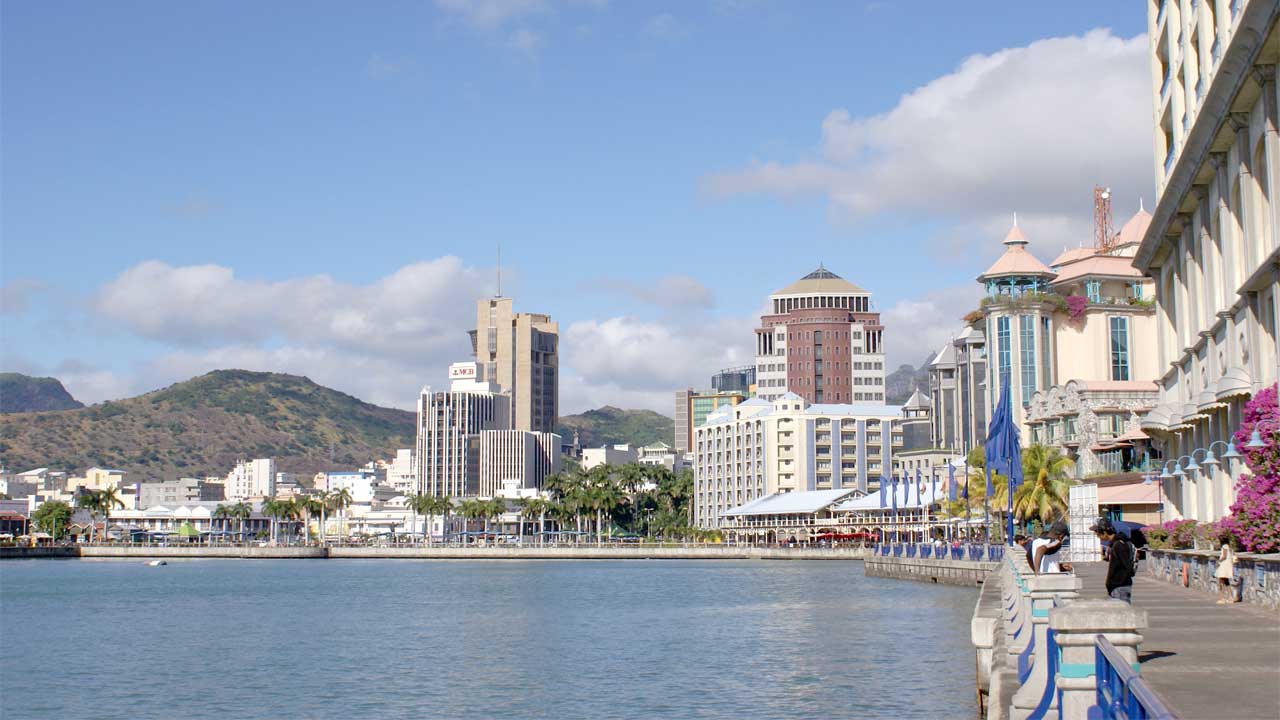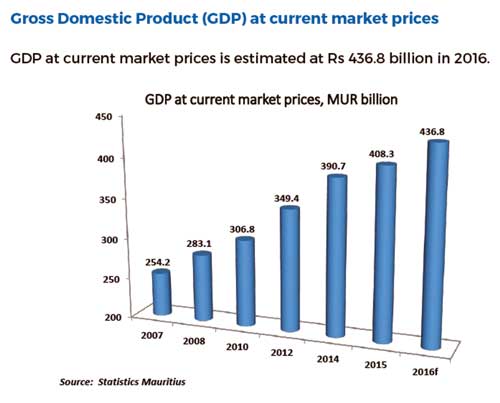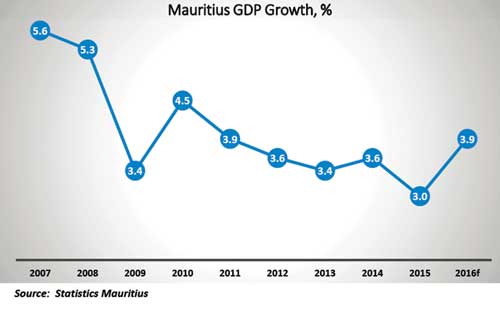
In what direction is the Mauritian economy heading following the measures announced in the Budget speech? The Minister of Finance has given a central place to macroeconomic policies according to economist, Dr Bhavish Jugurnath. He says that “it is comforting to note that macroeconomic priorities have been taking a central place in the government discourse recently.” He analyses different aspects of the country’s economy.

“Whilst not dismissive of headway being made to lay framework conditions with a view to achieving and harnessing a nascent economic momentum, the Mauritian economy would remain in a challenging zone in 2016 partly linked to the notable worsening of investment projections with the Eurozone crisis. Thus, local economic growth based on GDP at market prices is anticipated to stand at 3.4% this year according to IMF Forecast,” says Dr Jugurnath.
According the analysis of the economist, GDP annual growth rate in Mauritius averaged 3.84% from 2001 until 2015, reaching an all time high of 9.8 per cent in the first quarter of 2003 and a record low of -0.8% in the first quarter of 2005. Real GDP growth is estimated to have slowed somewhat, to 3.4% from 3.6% in 2014, as weak external demand, a protracted decline in construction, and the collapse of the BAI Group, more than offset the positive impact of favourable terms of trade.
Gross Domestic Product (GDP) for the year 2016 is estimated at Rs 436.8 billion, compared to Rs 408.3 billion in 2015. In 210, GDP was estimated at 306.8 billion. GDP per capita was estimated to be 12,128 USD in 2015. It should be recalled that Mauritius attained the ‘Upper Middle Income Status’ in 2003 when the per capita GDP reached 4,260 US dollars.
According to forecasts, the economy will grow by 4.1% in 2016/2017. In 2017/2018 the GDP growth is estimated at 4.6 % while a growth rate of 5% is expected in 2018/2019. Economic growth will be driven mainly by the construction sector, financial services, tourism and the ICT activities.

Moreover, the Budget has given special consideration to two important traditional sectors, namely agriculture and manufacturing. Diversification will be the key word for better growth. Nevertheless, the removal of customs duty on imported clothing items is feared to negatively impact on local manufacturing units catering for the domestic markets. Small entrepreneurs in this segment fear they might not be able to compete with cheaper imports.

The Budget has been presented in a particular economic context with worsening global economic indicators. There are increasing signs that global growth will slow down, while the Chinese economy continues its trend towards a lower growth rate with an internally driven economy. On the other hand, Europe faces a peculiar crisis following the referendum held in the United Kingdom for Brexit. With this new development it is expected the UK's economic outlook has sensibly darkened as economic operators consider moving businesses to mainland Europe and British unemployment is expected to rise. On the EU itself, there is growing economic pressure from countries such as Greece, Spain and Italy.
 J'aime
J'aime














